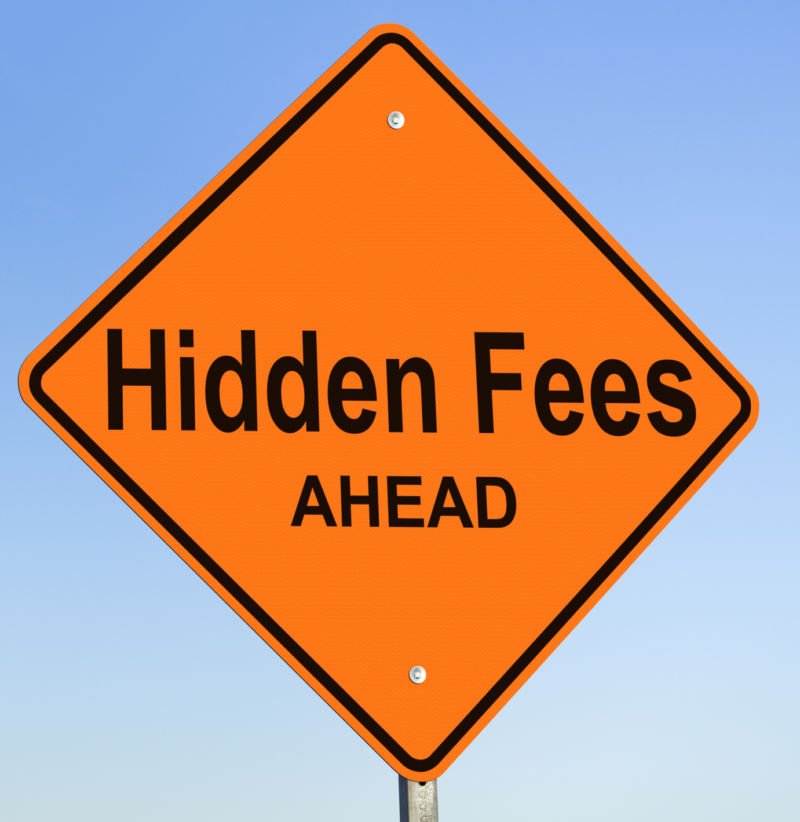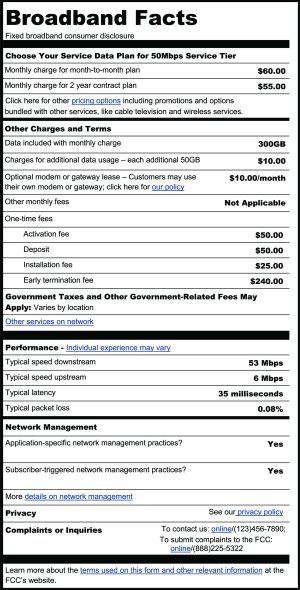
The Federal Communications Commission is exempting ISPs with 250,000 or fewer subscribers from rules that require greater disclosures about billing and other aspects of Internet service.
The enhanced transparency requirements were passed in February 2015 as part of the commission's net neutrality order. To comply, home Internet providers and cellular carriers must make public disclosures with the following information:
- Price—the full monthly service charge. Any promotional rates should be clearly noted as such, specify the duration of the promotional period, and note the full monthly service charge the consumer will incur after the expiration of the promotional period.
- Other fees—all additional one-time and/or recurring fees and/or surcharges the consumer may incur either to initiate, maintain, or discontinue service, including the name, definition, and cost of each additional fee. These may include modem rental fees, installation fees, service charges, and early termination fees, among others.
- Data caps and allowances—any data caps or allowances that are a part of the plan the consumer is purchasing, as well as the consequences of exceeding the cap or allowance (e.g., additional charges, loss of service for the remainder of the billing cycle).
The enhanced transparency rule from 2015 also required ISPs to disclose packet loss statistics. That was in addition to other network performance measures that ISPs were required to disclose by earlier rules passed in 2010.
The commission's 2015 order temporarily exempted ISPs with 100,000 or fewer subscribers. That exemption expired in December 2016, but the FCC's new Republican leadership on Friday announced a five-year renewal of the exemption and said from now on it will apply to ISPs with no more than 250,000 subscribers.
The exemption's "lapse left thousands of our nation’s smallest and most competitive Internet service providers—mom-and-pop wireless Internet service providers (WISPs), small cable operators, municipal broadband providers, electric cooperatives, rural telephone companies, and others—worried that they would be subject to unnecessary, onerous, and ill-defined reporting obligations," FCC Chairman Ajit Pai said in his announcement.
The proposed order Pai circulated to fellow commissioners mirrors bipartisan legislation passed unanimously by the House of Representatives in March 2016, he said. Republican Commissioner Michael O'Rielly has already voted in favor of Pai's proposal, giving it at least a 2-1 majority with the vote of Democratic Commissioner Mignon Clyburn still pending.
Though Pai described the rules as "ill-defined reporting obligations," the FCC last year designed "nutrition" labels that ISPs can use to give customers all the information required by the enhanced transparency rule. ISPs can use a different format if it complies with the rules, but using the sample labels designed by the FCC is considered a "safe harbor" for demonstrating compliance.

US Sen. Edward Markey (D-Mass.) blasted the FCC decision's decision on Friday, saying it will "allow broadband providers with 250,000 subscribers or fewer to withhold important pricing and performance information from consumers."
"By extending the exemption to broadband providers with 250,000 or fewer subscribers, approximately 9.7 million total subscribers may not have access to this fundamental information," Markey said.
Pai argued that "the FCC should be sensitive to the impact regulations can have on [small] businesses." These businesses "are often the linchpin of a more competitive marketplace" but may not have the resources to comply with federal regulations, he said.
reader comments
91